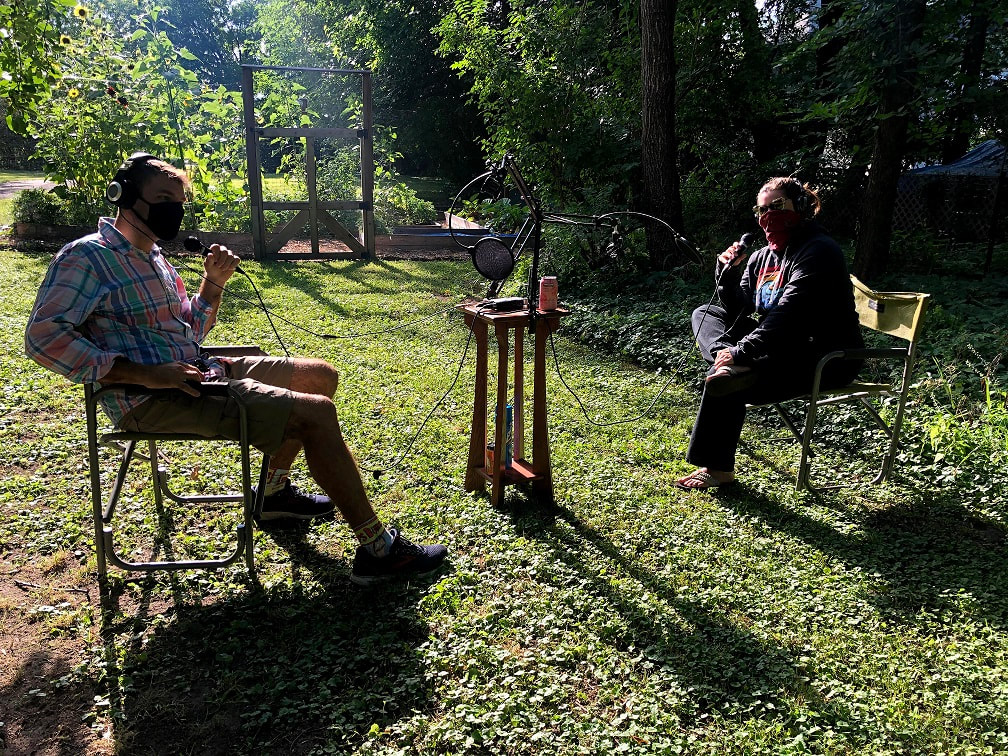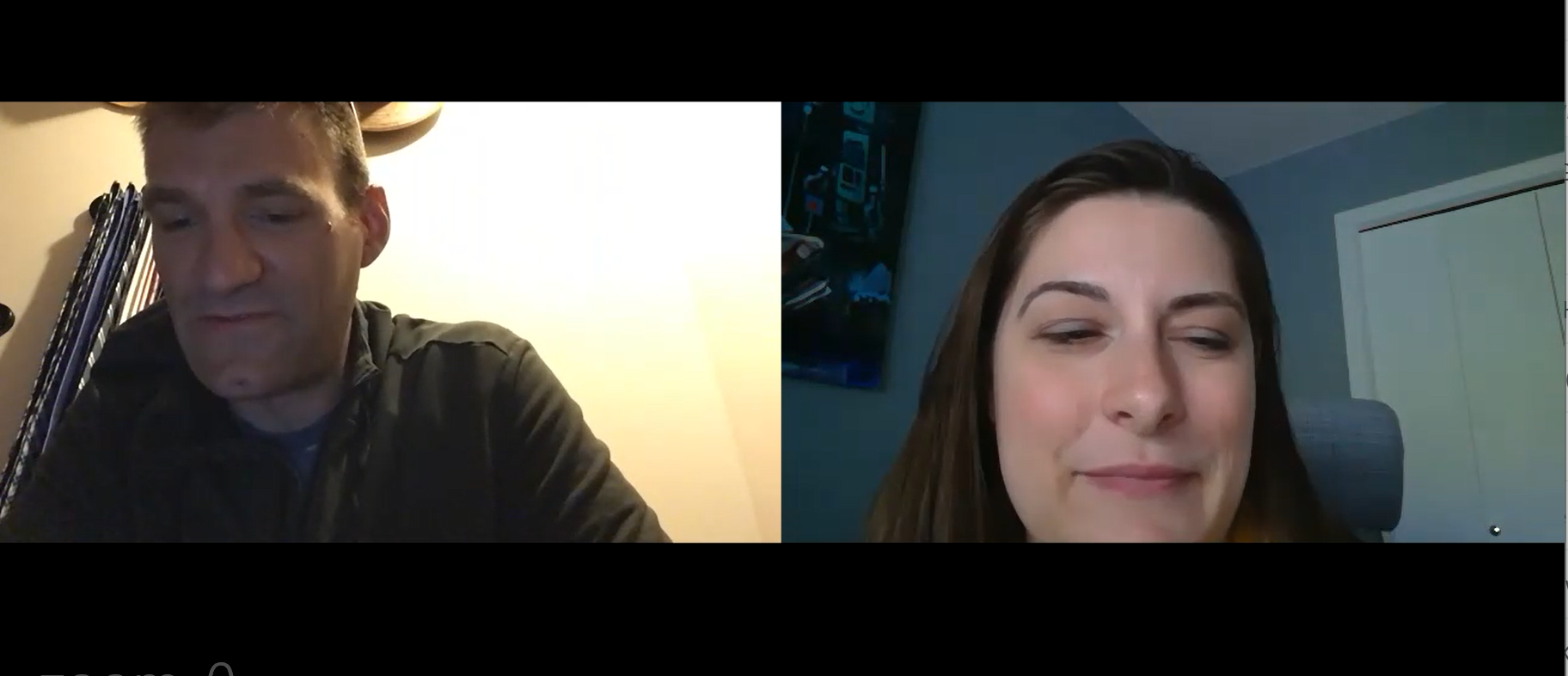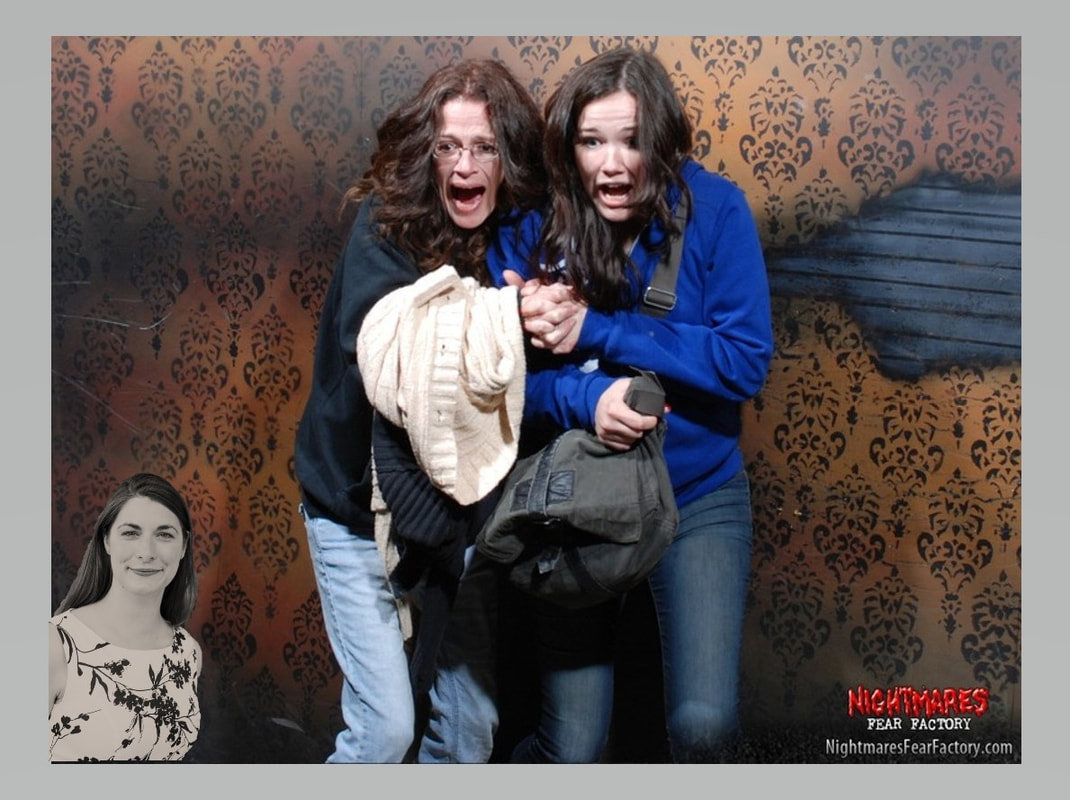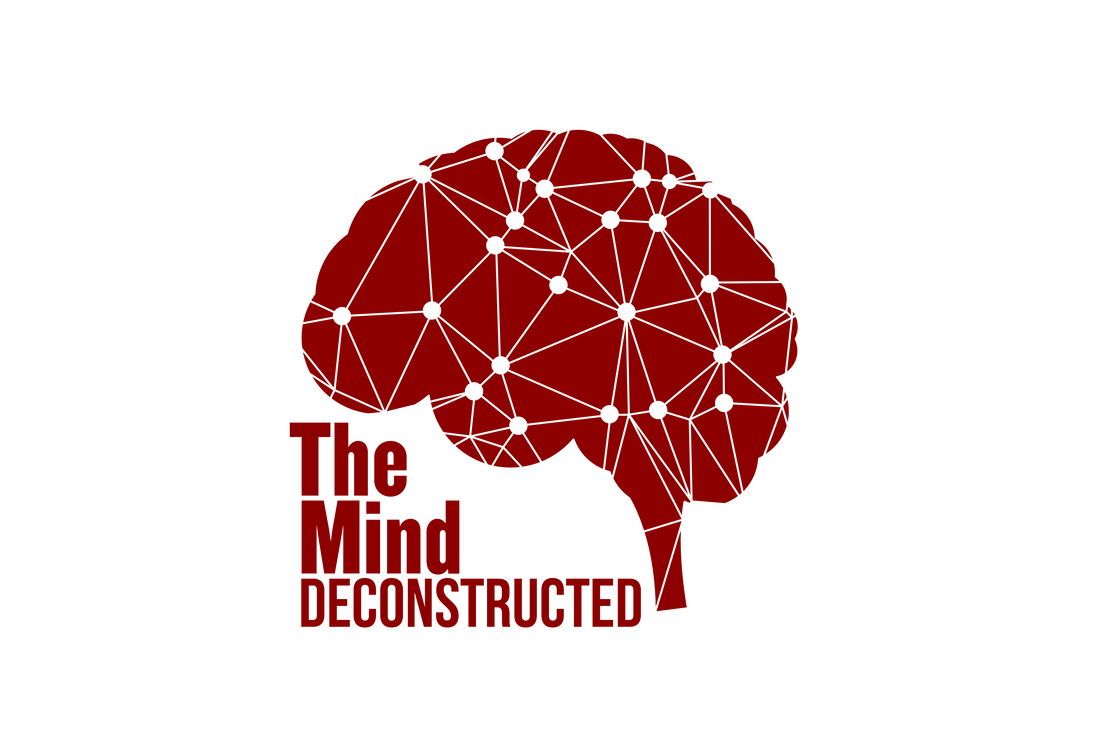|
With the ongoing COVID-19 Pandemic, racial injustice, winter upon us, and a highly contentious election, are you experiencing a sense of 'impending doom'? Many people are describing intense, ongoing stress and exhaustion related to their circumstances. Individuals can experience a sense of 'impending doom' related to an anxiety or panic disorder, but of course can also experience this sensation when faced with a threatening situation.
Dr. Kaz and George discuss our shared sense of 'impending doom', including our natural tendency to 'doomscroll'. What are the consequences of this type of stress? Make your voice heard through voting and remember, Mental Health is on the ballot! To learn more about 'Doomscrolling' from Dr. Kaz, check out this hour-long conversation with Dr. Kaz and Psychologist, Dr. Amelia Aldao, hosted by Angela Davis for Minnesota Public Radio News. Here is the link to our "Get out the Vote" video brought to you be Mental Health Professionals.
Dr. Kaz and George discuss a painful truth facing our society. Racism and discrimination persist. As witnessed through the death of George Floyd and many others, racism has deadly consequences. In what other ways are individuals and communities impacted by discrimination, marginalization and racism? Dr. Kaz and George explore mental health outcomes. How can we work together to be part of the solution?
For more information on the topic of race-based medicine, see this TedTalk by law scholar Dorothy Roberts.
In this episode of The Mind Deconstructed Podcast, Dr. Kaz and George check in with the listeners. Are you OK? We have been isolating for nearly 8 weeks to reduce the spread of the coronavirus. People are experiencing varying degrees of stress. We are bracing for a wave of mental health symptoms as a result of this crisis. Alcohol use for people isolated at home is increasing. How many "quarantinis" are too many? Enter the "judgement free zone" and hear the facts.
Dr. Kaz takes a moment to connect with the podcast audience in this special edition of The Mind Deconstructed Podcast during this time of stress and upheaval related to our collective efforts to slow the spread of the coronavirus known as COVID-19. Dr. Kaz describes four key ways in which this global pandemic may be impacting individuals' mental health, along with specific steps to take to mitigate the impact of stress, grief, isolation and panic. Recorded on March 13th, 2020.
Dr. Kaz and George acknowledge the current hot topic in mental health: the widespread fear and concern regarding COVID-19, the novel coronavirus which has impacted people in several areas across the globe. How much concern is too much?
On this episode, Dr. Kaz takes this opportunity to demystify a therapy which has been misportrayed in film and television and misunderstood by the general public for decades. What exactly is electroconvulsive therapy (ECT)? What happens during this procedure? For what type of conditions is ECT recommended? Learn the facts!
Dr. Kaz and George and back at the microphone for our first podcast of 2020 and explore the impact of sunlight and screen light exposure on our brains. Are our moods sensitive to the season? Does screen exposure impact our sleep quality? How does the brain respond to various kids of light exposure? Learn about Seasonal Affective Disorder (SAD)!
What is Impostor Syndrome? In this case, we are not discussing a diagnosable mental illness. Impostor Syndrome a common feeling people describe in the course of their work or social life. Automatic thoughts experienced by people with Impostor Syndrome include, "I don't belong here", "I'm not qualified to do this", "I was let in to this program or team by mistake", and "Everyone else is feeling secure and I am the only one struggling in this situation". What is the cause of Impostor Syndrome and what are some first steps in pushing back against these automatic assumptions when these assumptions are not supported by facts or evidence? Dr. Kaz and George share the basics of this commonly experienced phenomenon!
Meet Dr. Kaz at the Minnesota State Fair from 10:45am to 1:15pm as part of Mental Health Awareness Day on Monday August 26, 2019 at Dan Patch Park.
Public figures, such as Carrie Fisher, have shared about their lived experience with bipolar disorder. Bipolar disorder is common and easily mistaken for other types of mood disorders. What are the symptoms of bipolar disorder and how is bipolar disorder different from other types of mental illness? What are common treatments? What are some of the barriers to helping someone who may be experiencing a manic episode?
Meet Dr. Kaz at the Minnesota State Fair as part of Mental Health Awareness Day on Monday August 26, 2019 at Dan Patch Park. In this episode we describe some of the support services provided by the National Alliance on Mental Illness (NAMI). To learn more about this organization or to contribute, please visit www.nami.org or www.namimn.org for the Minnesota Chapter.
The importance of mental health is constantly in the headlines, as prominent public figures such as Justin Bieber, Ariana Grande, and Britney Spears share about their mental health challenges on social media and other platforms.
Healthy sleep is critical for physical and mental health. For many people, nightmares and dream-related content can severely impact sleep. What makes a dream a nightmare and why do nightmares happen? Dr. Kaz and George share their reoccurring nightmares and discuss practical information on how health professionals have worked to develop medication and other strategies to effectively reduce the frequency and intensity of nightmares. More information and specific instructions about the "Nightmare Protocol" may be found in the DBT Skills Training Handouts and Worksheets, Second Edition, by Marsha M. Linehan (2015). Interested in hearing more on the topic of dreams from Dr. Kaz? See this interview by Cory Hepola on KARE11 Breaking the News: "Do our dreams have meaning?" from Nov 13, 2017.
Will the medication class of benzodiazepines follow in the footsteps of opioids as the next harmful medication epidemic? In this first episode of Season 2 of The Mind Deconstructed Podcast, Dr. Kaz and George confront this controversial subject. Twelve percent of the United States population is prescribed a medication in this class every year. We explore the risks and benefits. You decide!
After a bit of a hiatus, Dr. Kaz and George return with a special episode recorded in honor of Mental Health Awareness Month. Dr. Kaz and George were delighted to participate in the first ever "Mental Health Awareness Day" at the Minnesota State Fair sponsored by the National Alliance on Mental Illness Minnesota and the Minnesota State Advisory Council's Sub-Committee on Children's Mental Health. Listen to recorded questions from attendees on the topics of advocacy, mindfulness, the role of work in recovery, and how to best maintain hope for others who may have lost their own capacity for hope.
Are antidepressant medications just "happy pills"? How should an antidepressant medication be expected to work? How long should a person take antidepressant medication and what happens when these medications are discontinued? Dr. Kaz, with help from her brother, George, provides an overview of the most frequently prescribed antidepressant medications, including the types of symptoms these medications are used to treat and common side-effects.
In the shadow of two public deaths by suicide and alarming data from the Centers for Disease Control on the increasing number of suicides, Dr. Kaz and George explore the impact and legacy of suicide. How does such an event impact surviving children and other family members? Are traumatic events that happen during childhood of greater significance that events which happen when we are older? How can we best understand and support children and adolescents who experience adverse childhood events? What types of events or circumstances constitute 'adversity'? Does ongoing, chronic invalidation and lack of representation in society count?
In the time between the recording and the posting of Episode 18: Mental Illness and School, we have learned of the death of fashion designer, Kate Spade; Chef, Anthony Bourdain; and received the Centers for Disease Control's 2018 report on increased rates of suicide across the United States. George and my hearts weigh heavily with these news stories. We can't possibly imagine the extent of this lost potential and devastation for surviving loved ones and our community.
As we reflect on the multiple stressors, barriers and issues facing people in their daily lives, George and I explore the intersection of mental illness and our educational system. I share a phenomena called "new tank syndrome" and its effect on students navigating new contexts, as they pursue their education. How can you assist a student who may be struggling? What resources do schools provide to support students with mental health challenges?
May is Mental Health Awareness Month and Borderline Personality Disorder Awareness Month. Inspired by these events, Dr. Kaz and George explore self-injurious behavior. Common and sometimes difficult to understand, Dr. Kaz describes different patterns for self-injurious behavior and some of the drivers of these behaviors. How are impulsive self-aggression (punching a wall), intentional self-harm (cutting, burning), and even nail-biting, skin-picking and hair-pulling different from one another? What are possible treatments or strategies to reduce the harm associated with these behaviors, while still meeting the mental health needs of each individual?
It's the second anniversary of Prince's tragic death. As details unfold regarding his struggle with pain and use of opioid medications, we better understand the cost associated with problematic use of this class of medications and the pattern of taking pills or other substances to address chronic pain or other symptoms. From caffeine, food, and nicotine, to alcohol, marijuana and opioids- when are these substances helpful for emotion regulation and when do these substances harm more than help? Dr. Kaz and George begin to explore the potential function of these substances and associated risks.
Dr. Kaz and George explore mental illness issues related to pregnancy, including planning, pregnancy itself, and the period of time after a baby's birth. Topics discussed include the "baby blues", major depression, anxiety, bipolar disorder and psychosis. Dr. Kaz also shares about a rarely discussed, but common issue: post-partum obsessive compulsive disorder. This is a condition in which new parents experience intrusive and unwanted thoughts or mental images related to the health and safety of their child. Differentiating this condition from post-partum psychosis could be a matter of life and death!
The person who recently killed and injured people in Texas through bomb attacks (known as the "Austin Bomber") reportedly referred to himself as a "psychopath" in writings found in the investigation following his death. In this episode of The Mind Deconstructed Podcast, Dr. Kaz provides important definitions of words which are commonly misunderstood, such as "psychopath" and "psychosis"- terms with completely different definitions. For psychotic illnesses, such as schizophrenia, what are people living with the symptoms of these illnesses experiencing and what can be done to improve management of symptoms?
Kevin Love, professional basketball player for the Cleveland Cavaliers, recently wrote an essay called "Everybody is is Going Through Something" describing the impact of his panic disorder and the role of early lessons learned during his childhood. In this episode of The Mind Deconstructed Podcast, Dr. Kaz and George discuss children and adolescents with "big feelings" (emotional sensitivity which results in intense, frequent, and often confusing emotional states). Why do some people have big feelings? How can we help children and adults with big feelings learn to understand and manage their experiences? Dr. Kaz discusses a technique to practice in these situation which can make all the difference.
Dr. Kaz and George, Minnesota sister and brother duo, tackle the topic of shame; "It's a biggie!". What is the function of this intensely painful emotion? Is shame potentially fatal? How is shame related to psychiatric disorders? Dr. Kaz shares a technique to reduce the intensity of shame. In this increasingly digital world, the stakes have never been higher!
We all experience anxiety. Sometimes anxiety helps us meet our goals. Anxiety can also rise to the point of extreme intolerability or can be so constant that wellbeing is substantially negatively impacted. Where is this line? What are some common medical causes of anxiety? Could caffeine, nicotine, or energy drinks really be part of the problem? When is a medication needed? Dr. Kaz teaches George some simple and proven techniques to rapidly reduce intolerable anxiety or panic when it happens.
Fun with PhotoShop. Original photo sourced from NightmaresFearFactory.com
Is it ethical for psychiatrists to comment on the mental health of public figures? What if the health and safety of the nation is at stake? Dr. Kaz and George take the opportunity to define terms being discussed in the media as relates to the President's recent physical exam. What is a cognitive screen? How is this different than a psychiatric evaluation? Dr. Kaz administers the Montreal Cognitive Assessment (MoCA) to George. This screening tool may be used without permission for educational purposes. Hear George take this exam and learn the results of his screening.
Why is it so hard to stop playing that video game and go to bed? What is that feeling of irresistible tension that prompts a person to check a text alert? When is a passion or interest considered an addictive behavior? Dr. Kaz and George talk about the line between interest and obsession and options for treatment for when behaviors feel beyond one's control.
Dr. Kaz and George continue their discussion of traumatic experiences and their impact on mental health and well being. This episode addresses PTSD treatment, including medication, side effects, and therapeutic approaches. More controversial approaches, such as marijuana and MDMA ("ecstasy") are also explored in this episode.
Erratum: In this episode, I mistakenly state that the two FDA approved medications for PTSD are sertraline and citalopram. The correct selective serotonin reuptake inhibitor (SSRI) medications approved by the Food and Drug Administration (FDA) for PTSD treatment sertraline (Zoloft) and paroxetine (Paxil). Please take note of this information and I apologize for this error. Hello Podcast friends, I wanted to share with you a little information about our collaboration with my favorite artist, Adam Swanson. He is a Duluth, MN, artist and he has authorized use of images of his paintings in our podcast project. Here is more information about Adam's magnificent work. www.adamswanson.com Photo credit: Eddy Gilmore
|






